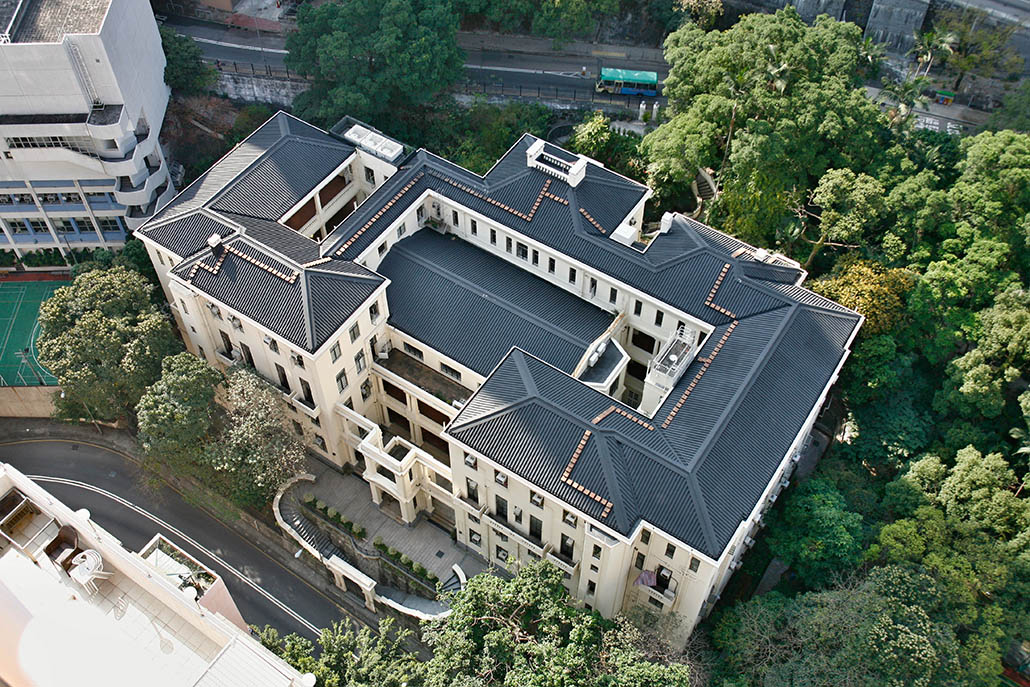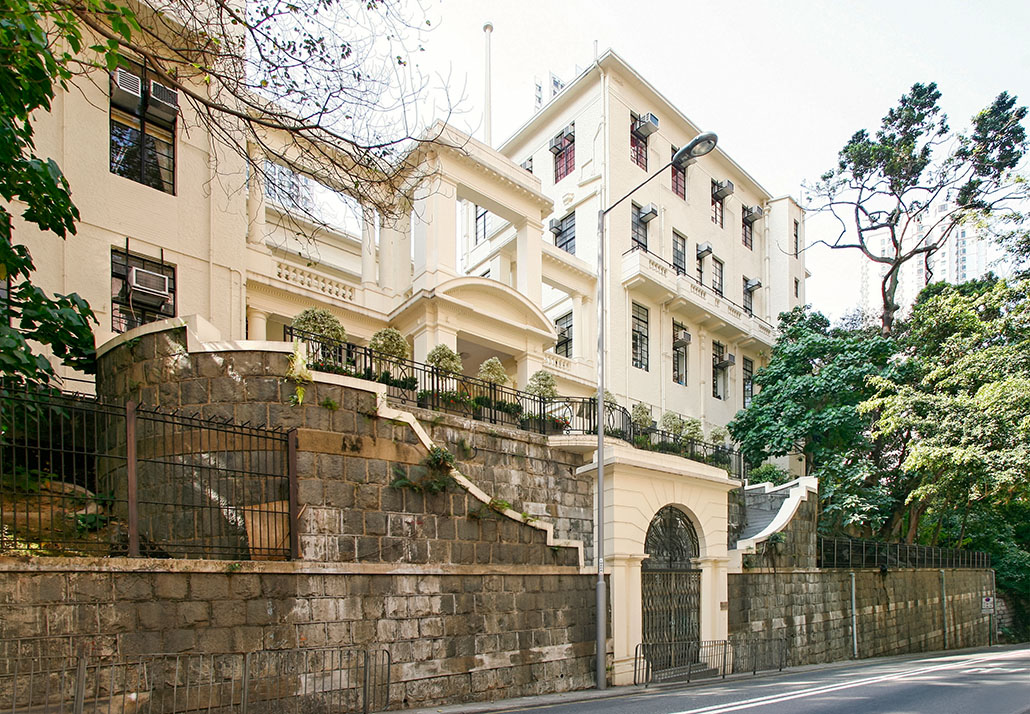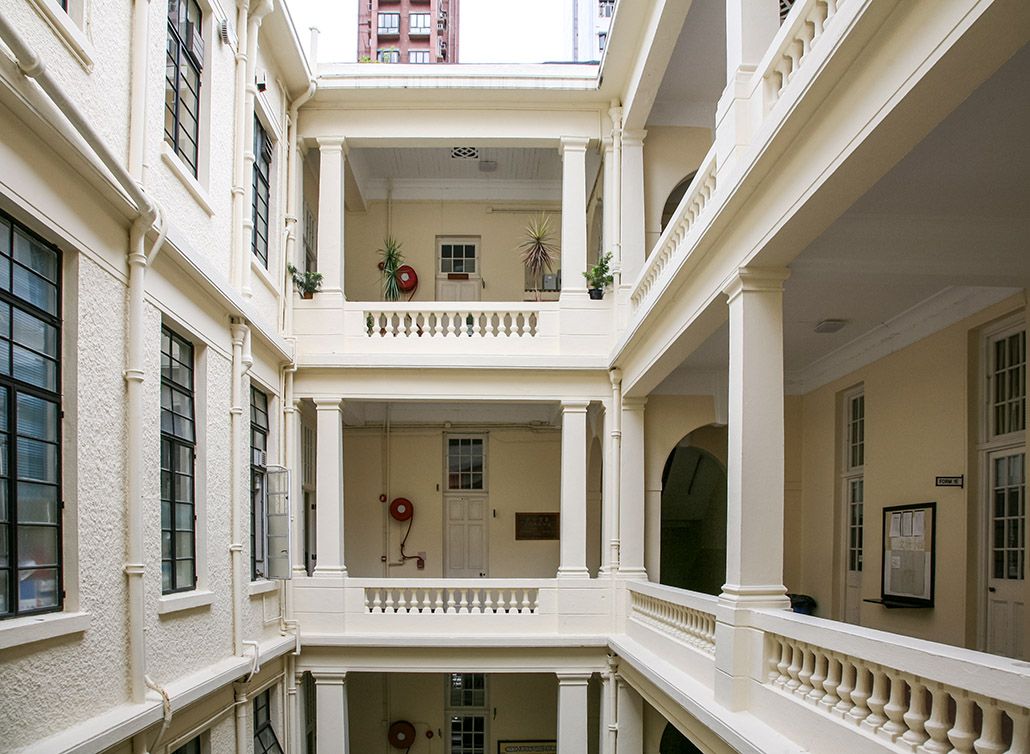St. Stephen's Girls' College, located at No. 2 Lyttelton Road, is one of the earliest girls' schools in Hong Kong. It was founded in 1906 by Anglican Church, with the support of Chinese leaders such as Ho Kai and Tso Seen-wan, for Chinese girls. Initially located on Caine Road, the college was moved to its present site in 1923. The foundation stone of the building was laid by the then-visiting H.R.H the Prince of Wales, and Lady Stubbs, the wife of then Hong Kong Governor, Sir Reginald Stubbs, officiated at the college’s opening ceremony. The Main Building was renamed June Li Building in 1998. It is a four-storey structure with East and West Wings enclosing the school hall in the centre; the walls are constructed with granite and red bricks, and its pitched roof is laid with Chinese pan-and-roll tiles. The Western layout of the building is of particular interest due to its similarity to the traditional Chinese courtyard house.
In the early days of the Battle of Hong Kong, the school building was used as a temporary hospital to care for patients from Queen Mary Hospital and Nethersole Hospital. Prominent writer Xiao Hong was admitted to the hospital in 1941 and subsequently passed away there. In 1943, Japanese forces seized the campus and converted the college into Toa Gakuin, in which Japanese instructors gave lessons to teachers and civil servants.
During the Japanese Invasion, alumni and current students of the college devoted themselves to the country. Some students returned to the Mainland to join the relief efforts of the Red Cross and hospitals; others remained in Hong Kong as doctors and nurses, upholding their duties and continuing to serve the people of Hong Kong. Alumna Ellen Li Ts'o Sau-kuan founded Hong Kong Chinese Women's Club in 1938, with the mission of gathering Chinese women, promoting charity work for national salvation, serving the community. The club contributed immensely to fight for women's rights and status in modern times. The school magazine, News Echo, often published students' views on China's current affairs, with articles such as Zuguo Di Huainian (Thinking of the Motherland) and Woguo Buwangyu Riben Er Wangyu Hanjian Lun (Our country will not fall at the hands of Japan but of traitors). Thus, we see that the students of the college cared deeply about China and supported their country throughout the Japanese Invasion.
The school is not open to the general public. All interested individuals are requested to contact the school prior to planning a visit. Please note that visitor approval will be determined at the school’s discretion.
Address:
No. 2 Lyttleton Road, Mid-levels, Hong Kong.
Enquiry Hotline:
(852) 2549 2521




